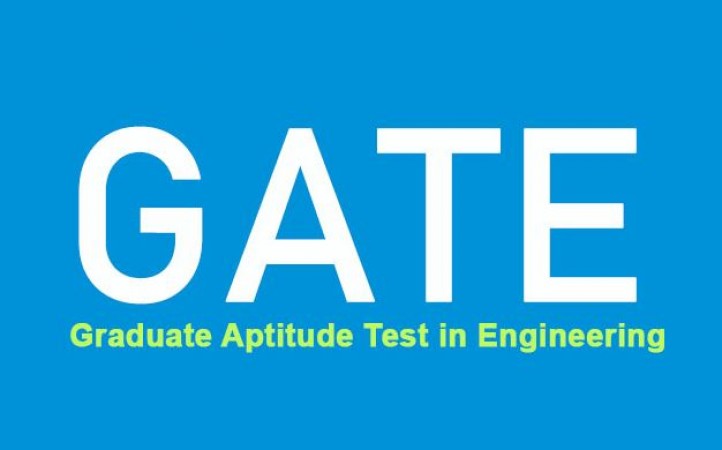
Introduction
Are you an aspiring engineer looking to pursue higher education in India? Look no further than the GATE (Graduate Aptitude Test in Engineering), a highly competitive examination that serves as a gateway to postgraduate programs in prestigious institutions across the country. In this comprehensive guide, we will explore everything you need to know about the GATE (Graduate Aptitude Test in Engineering), from its purpose and eligibility criteria to preparation strategies and frequently asked questions. So, let's dive in and unlock the doors to your engineering dreams!
GATE (Graduate Aptitude Test in Engineering)
The GATE (Graduate Aptitude Test in Engineering) is an all-India examination conducted jointly by the Indian Institute of Science (IISc) and seven Indian Institutes of Technology (IITs) on behalf of the National Coordination Board (NCB)-GATE, Department of Higher Education, Ministry of Education, Government of India. It is a standardized test that evaluates the comprehensive understanding of various undergraduate subjects in engineering and science.
Eligibility Criteria
To be eligible for the GATE (Graduate Aptitude Test in Engineering), candidates must fulfill certain criteria set by the organizing committee. Here are the key eligibility requirements:
Qualifying Degree: Candidates should have completed or are in the final year of their Bachelor's degree in Engineering/Technology or Master's degree in any relevant science subject.
Age Limit: There is no age restriction to appear for the GATE (Graduate Aptitude Test in Engineering).
Nationality: Indian nationals, as well as candidates from Bangladesh, Nepal, Sri Lanka, Ethiopia, and the United Arab Emirates (UAE), are eligible to apply for GATE (Graduate Aptitude Test in Engineering).
GATE (Graduate Aptitude Test in Engineering) Application Process
To apply for the GATE (Graduate Aptitude Test in Engineering), candidates need to follow a systematic application process. Here's a step-by-step guide to help you through the process:
Registration: Visit the official GATE (Graduate Aptitude Test in Engineering) website and register by providing your personal and academic details.
Filling the Application Form: Log in with the registered credentials and fill in the application form with accurate information.
Upload Documents: Upload scanned copies of your photograph, signature, and other required documents as per the specifications mentioned.
Application Fee Payment: Pay the application fee through the available online payment methods.
Submission: Review the application form, make any necessary corrections, and submit the form.
Print Application: Take a printout of the submitted application form for future reference.
GATE (Graduate Aptitude Test in Engineering) Syllabus
The GATE (Graduate Aptitude Test in Engineering) covers a wide range of subjects, allowing candidates to choose their specialization based on their undergraduate background. The syllabus is designed to test the candidate's in-depth knowledge and understanding of their respective fields. Here are some of the major disciplines included in the GATE (Graduate Aptitude Test in Engineering) syllabus:
Aerospace Engineering
Agricultural Engineering
Architecture and Planning
Biotechnology
Chemical Engineering
Civil Engineering
Computer Science and Information Technology
Electrical Engineering
Environmental Science and Engineering
Mechanical Engineering
For a detailed syllabus, candidates can refer to the official GATE (Graduate Aptitude Test in Engineering) website or the GATE (Graduate Aptitude Test in Engineering) information brochure.
GATE (Graduate Aptitude Test in Engineering) Exam Pattern
Understanding the exam pattern is crucial for effective preparation. The GATE (Graduate Aptitude Test in Engineering) is a computer-based examination that consists of multiple-choice questions (MCQs) as well as numerical answer type (NAT) questions. Here's a breakdown of the exam pattern:
Total Marks: The GATE (Graduate Aptitude Test in Engineering) is conducted for 100 marks.
Duration: The examination duration is three hours.
Question Types: The question paper includes both multiple-choice questions (MCQs) and numerical answer type (NAT) questions.
Marking Scheme: For MCQs, there is a negative marking for incorrect answers, while NAT questions do not have negative marking.
It is essential to familiarize yourself with the exam pattern to develop effective time management strategies and ace the GATE (Graduate Aptitude Test in Engineering).
GATE (Graduate Aptitude Test in Engineering) Preparation Tips
Preparing for the GATE (Graduate Aptitude Test in Engineering) requires a well-structured study plan and disciplined approach. Here are some valuable tips to enhance your preparation:
Understand the Syllabus: Thoroughly analyze the GATE (Graduate Aptitude Test in Engineering) syllabus and identify the topics you need to focus on. Create a study plan accordingly.
Refer to Standard Books: Consult recommended textbooks and study materials for each subject to build a strong conceptual foundation.
Practice Previous Year Question Papers: Solve previous year question papers and sample papers to understand the exam pattern and assess your preparation level.
Mock Tests and Online Resources: Take online mock tests and utilize digital resources such as video lectures, online tutorials, and educational websites for comprehensive learning.
Time Management: Allocate specific time slots for each subject and topic to ensure adequate coverage of the entire syllabus.
Revision: Regularly revise the learned concepts and formulas to reinforce your understanding.
By following these tips, you can optimize your preparation and increase your chances of securing a good rank in the GATE (Graduate Aptitude Test in Engineering).
Conclusion
The GATE (Graduate Aptitude Test in Engineering) is a highly prestigious examination that opens doors to numerous opportunities for engineering graduates. By understanding the exam pattern, following effective preparation strategies, and dedicating sufficient time and effort, you can strive for excellence in the GATE (Graduate Aptitude Test in Engineering). So, gear up, stay motivated, and embark on your journey towards a successful engineering career!
Pharmacy Board Exam: A Comprehensive Guide to Success
Nursing Licensure Exam: Your Gateway to a Rewarding Career
Board Exams (such as CBSE, ICSE, etc.): A Comprehensive Guide